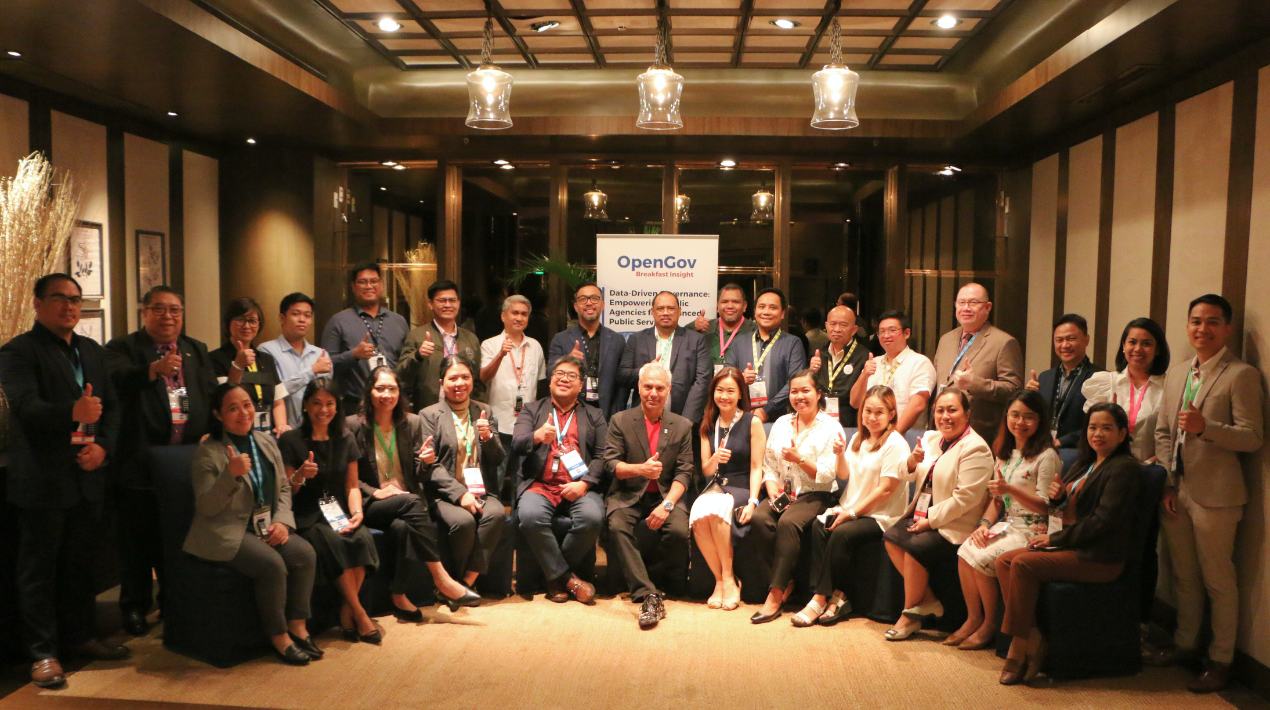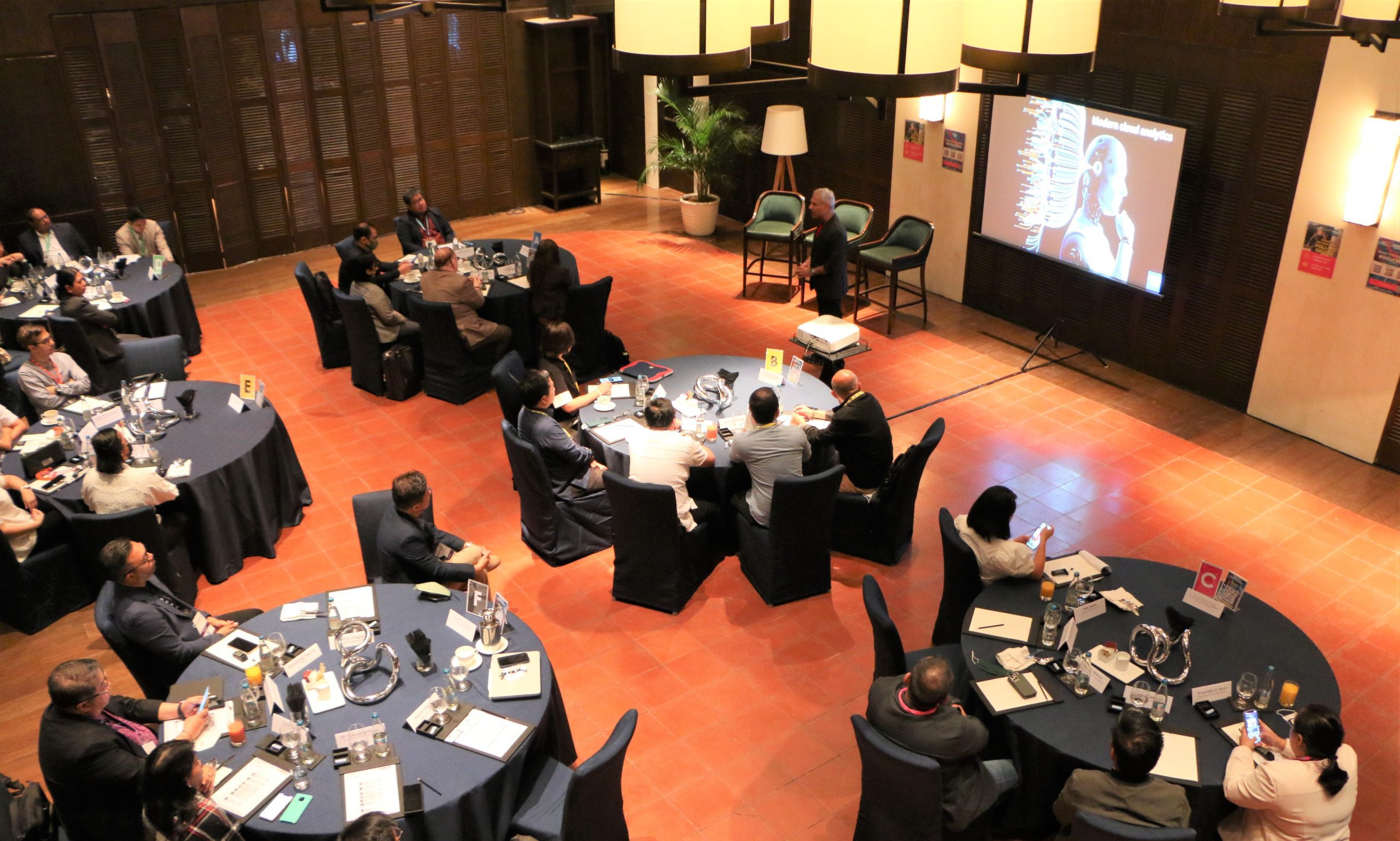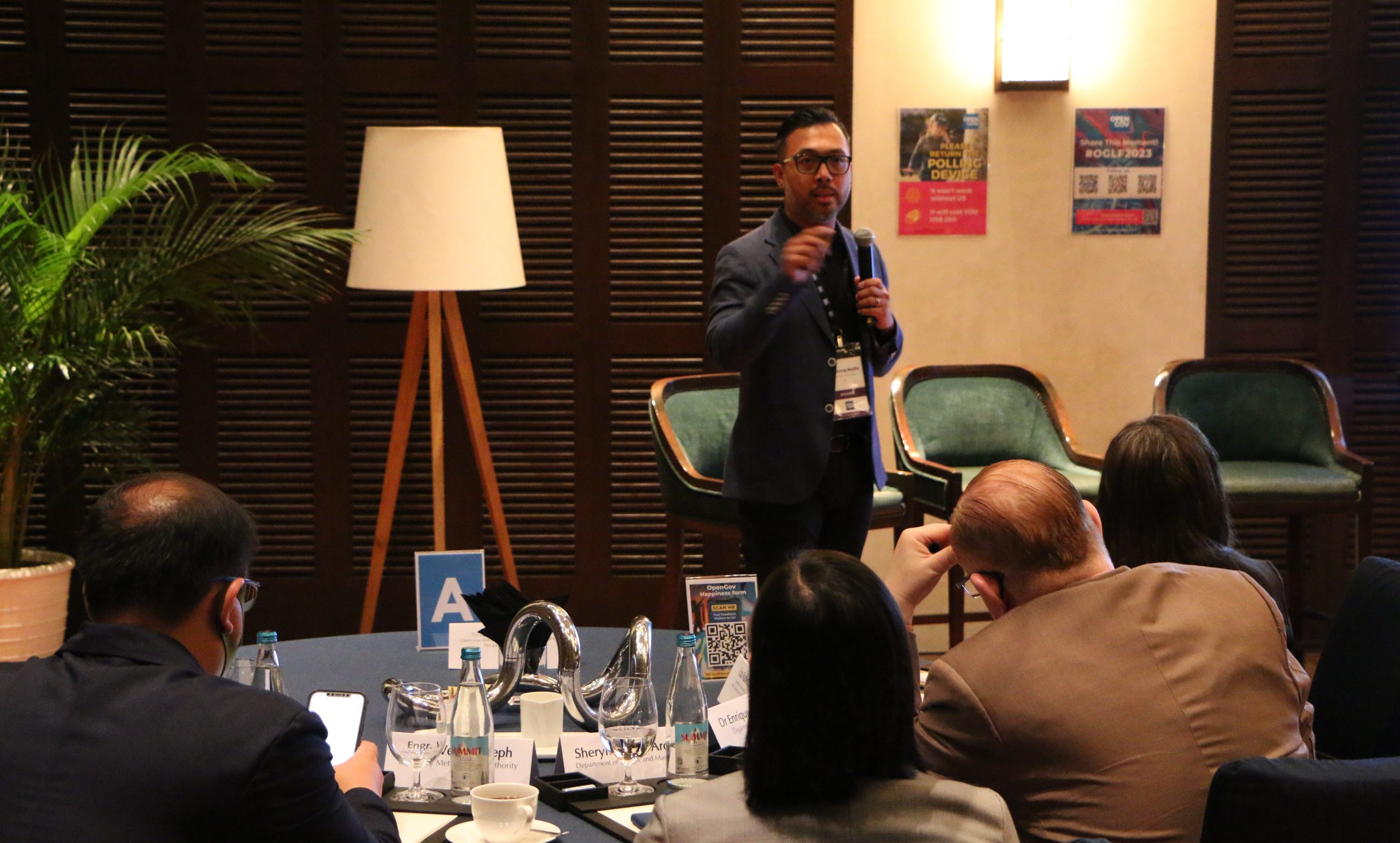
The data-driven governance paradigm emphasises using data and analytics to inform decision-making and improve public services. In today’s increasingly digital world, the abundance of data presents public agencies with an unprecedented opportunity to leverage information and insights to improve citizen outcomes.
Public agencies can acquire a deeper understanding of societal challenges, identify trends and develop evidence-based policies and interventions that address the needs and aspirations of the public by harnessing the power of data.
One of the primary advantages of data-driven governance is its capacity to facilitate well-informed decision-making. Traditional approaches to governance frequently rely on intuition or limited data, which can result in suboptimal outcomes.
Data-driven governance enables public agencies to enhance the delivery of public services. By analysing data on citizen preferences, utilisation patterns and satisfaction levels, agencies can tailor their services to meet the unique requirements of distinct population segments.
However, adopting a data-driven governance strategy presents obstacles that must be overcome. Providing data privacy and security is one of the major obstacles. Protecting sensitive citizen data from unauthorised access or misuse requires public agencies to establish robust protocols and safeguards. Data collection, storage and sharing should be governed by precise rules and regulations that ensure transparency and accountability.
The availability and accessibility of high-quality data is another obstacle. Government agencies frequently must negotiate fragmented data sources, inconsistent data formats and silos. Data interoperability and integration initiatives are essential for overcoming these obstacles and establishing a comprehensive and dependable data infrastructure that facilitates data-driven decision-making.
To realise the maximum potential of data-driven governance, agencies must invest in developing data analytics capabilities and fostering a data-driven culture. This includes training employees in data literacy and analytics, establishing partnerships with academia and the private sector and promoting a culture of evidence-based decision-making at all organisational levels.
The OpenGov Breakfast Insight held on 24 May 2023 at the Shangri-La The Fort Manila, aimed to provide the latest data integration and analytics benefits for the Philippine public sector.
Opening Remarks

Commencing the session, Mohit Sagar, the CEO & Editor-in-Chief of OpenGov Asia, acknowledges the paramount significance of data in the modern era, surpassing conventional assets like oil and gold. With the exponential advancement of technology, the world now generates vast quantities of data every second.
Companies and organisations are well aware that strategic utilisation of data can lead to substantial competitive advantages, enriched consumer experiences, and improved operational efficiency. They know the potential of harnessing data to gain a competitive edge and deliver exceptional value to their customers. Such information provides deep insights into consumer behaviour, market trends and decision-making processes.
With the relentless progress of technology, the inevitability of data proliferation becomes increasingly apparent. The prevalence of smartphones, Internet of Things (IoT) devices and digital platforms have resulted in an unprecedented amount of data being generated.
“With data-driven approaches rapidly gaining importance across industries, the ability to accumulate, analyse, and leverage data has emerged as a critical determinant of success in the contemporary era,” Mohit explains. “Consequently, data has become the most sought-after and protected asset in today’s economy.”
Through the integration of data strategies, organisations can effectively minimise redundancy, dismantle data silos and increase data quality and consistency. This enables businesses to derive valuable insights, identify trends and connections, and ultimately make informed and improved decisions.
Data integration promotes cooperation and efficiency, facilitating seamless data interchange among multiple stakeholders, systems and departments. Moreover, when policies align and complement each other, it becomes easier to foster such collaborations and reduce the wastage of resources and time.
A sound data strategy establishes a solid foundation for advanced analytics, machine learning (ML) and artificial intelligence (AI) initiatives, where accurate and integrated data play a vital role in modelling and achieving high prediction accuracy.
“By leveraging integrated data, organisations can unlock the potential of cutting-edge technologies, maximise the value of their data assets, drive innovation and gain a competitive edge,” Mohit reiterates.
 As the volume and complexity of data continue to grow exponentially, scalability becomes crucial for effectively managing and handling this data. The ability to scale resources and infrastructure allows organisations to accommodate the expanding demands of data processing, storage, and analysis. Scalability ensures that systems can effectively handle the ever-increasing data volume without compromising performance or efficiency.
As the volume and complexity of data continue to grow exponentially, scalability becomes crucial for effectively managing and handling this data. The ability to scale resources and infrastructure allows organisations to accommodate the expanding demands of data processing, storage, and analysis. Scalability ensures that systems can effectively handle the ever-increasing data volume without compromising performance or efficiency.
Virtualisation technology has driven a paradigm shift in the scaling of services and storage in the digital environment. By decoupling physical resources from the underlying hardware, virtualisation enables the efficient allocation and utilisation of processing power, memory and storage resources. This technology empowers organisations to optimise their resource utilisation, leading to enhanced efficiency and flexibility in managing their digital infrastructure.
Using virtualisation, businesses can dynamically expand their infrastructure as needed, scaling services and storage space to meet the demands of expanding data needs. It offers flexibility and agility without being constrained by physical hardware, enabling businesses to respond swiftly to shifting needs.
“Companies can meet the needs of a data-driven world by successfully managing data expansion, enhancing scalability, and optimising resource utilisation via virtualisation,” Mohit observes.
Once access and authorisation protocols are established within policies, individuals across different agencies can work more efficiently and expediently. These protocols create a streamlined process for granting appropriate access to relevant data and systems, ensuring that only authorised personnel can retrieve the information they need in a timely manner.
When data is handled and used correctly, it has the potential to greatly enhance the effectiveness and efficiency of the work and duties at hand. The proper handling and utilisation of data by the right people enable the identification of areas for improvement, streamlining processes and allocating resources more effectively.
By analysing data, organisations gain a deeper understanding and valuable insights by uncovering patterns and trends. Through sophisticated data analysis techniques, they can extract meaningful information and identify correlations that might not be apparent at first glance.
“By leveraging data-driven insights, staff can make informed decisions, improve service delivery and result in better outcomes for citizens and a higher level of public trust and satisfaction,” Mohit concludes.
Welcome Address

According to Armstrong Mejilla, Senior Director, APJ Presales at Qlik, the phrase “Data Everywhere, Data Everything” succinctly captures the pervasive nature of data in today’s world. It highlights the imperative to address the challenges and seize the opportunities arising from the abundance of data. Furthermore, it underscores the critical significance of responsible and effective data management and utilisation to harness its full potential.
The ubiquitous presence and extensive utilisation of data in today’s digital world emphasise the integral role it plays in people’s lives, permeating every facet of personal and professional activities. Data has become an inseparable component, shaping and influencing various aspects of daily life, from personal decision-making to professional endeavours. Its omnipresence underscores the significant impact and reliance on data in today’s interconnected society.
“Data continues to grow at astounding rates, creating exciting opportunities for public sector organisations to improve citizen services, enhance financial performance and better meet their missions,” Armstrong acknowledges. “But when it comes to generating true value from business intelligence and data analytics investments, the differentiator often comes down to culture.”
Many businesses have made attempts, but often faced failures, in implementing digital transformation projects aimed at fostering a culture of innovation. However, it is crucial for businesses to shift their focus towards cultivating the concept of ‘digital business agility.’
Rather than solely aiming for transformation, organisations should prioritise agility, which allows them to swiftly adapt and respond to the evolving digital landscape. By embracing digital business agility, businesses can foster a mindset that embraces change, experimentation and continuous improvement, enabling them to thrive in the dynamic and competitive digital realm.
The three primary pillars of digital business agility – heightened awareness, informed decision-making, and swift execution – allows organisation’s to respond swiftly and effectively to emerging threats and seize new market opportunities before their competitors even notice them.
“These pillars are not technologies,” Armstrong clarifies. “ They are, rather, capabilities and a mindset facilitated by a proper understanding and implementation of technology.”
Hyperawareness refers to a company’s ability to detect and monitor changes in its business environment. The business environment encompasses both internal and external factors that impact the company’s opportunities and risks. It signifies the heightened capacity of a company to stay vigilant and cognizant of the dynamic factors that can shape its success or pose potential threats.
Armstrong emphasises that companies with hyperawareness are less susceptible to being taken by surprise and are difficult to disrupt because they can detect their vulnerabilities and modify their models and processes accordingly.
For instance, hyperaware companies have a deep understanding of when and why their customers experience dissatisfaction. They prioritise identifying the true value that customers attribute to their products, rather than fixating on the delivery methods within the existing value chain.
Similarly, when a company is acutely aware of its competitive landscape, it has a deep understanding of the strengths and vulnerabilities of its traditional competitors. Furthermore, it recognises the potential impact that new business lines or acquisitions may have on its position in the market. In addition, it can anticipate which non-traditional competitors could threaten their market position and the disruptive strategies they could employ.
Informed decision-making is a company’s ability to make optimal decisions in every situation, Armstrong believes. To excel at informed decision-making, businesses must develop sophisticated data analytics capabilities that augment human discretion.
“To achieve this, it is crucial to analyse, scale, package and disseminate the data derived from the company’s hyperawareness throughout the entire organisation,” Armstrong elaborates.” This ensures that relevant and valuable insights are effectively shared and utilised across the various departments and stakeholders within the company.”

Fast execution refers to a company’s capacity to carry out its plans efficiently and swiftly. “Companies must be informed of every step of the transition to have the flexibility to adjust. Again, data plays a role,” reiterates Armstrong.
Qlik has made significant investments to help the federal and regional sector agencies. Qlik Cloud Government offers customers a modern data and analytics platform that is specifically designed to cater to the following needs and requirements:
- Speed: Qlik Cloud Government accelerates data and dev-ops with a platform that streamlines the entire analytics pipeline from – data ingestion and management to insight generation and action.
- Security: Ensuring customers feel safe and protected, Qlik Cloud Government has been built with security designed at its core following industry-leading security and compliance controls.
- Scale: It is beyond critical that an analytics platform can scale and grow in stride with an organisation. Qlik Cloud Government offers scalability across infrastructure, administration, security, and delivery.
Governments now have the opportunity to leverage technology and harness their data in ways that were previously unexplored. This enables them to gain unprecedented insights, leading to improved outcomes and more efficient practices. By effectively utilising their data, governments can drive positive changes and enhance their overall operational effectiveness.
According to Armstrong, data holds boundless possibilities and has the potential to truly transform the world. The example of the US Environmental Protection Agency (EPA) is an illustration of this. The EPA required agency-wide visibility and self-service analytics for their field analysts, but their existing legacy analytics system (Business Objects) proved to be slow and inflexible.
As a result, the EPA decided to implement Qlik Sense, enabling them to analyse environmental health and safety data across various regions. They successfully distributed Qlik Sense to over 200 analysts nationwide, empowering them with the necessary tools and capabilities to efficiently access and analyse the data.
Within 30 days of going live (before the announcement), they had 100 users and currently, they have reached 200 users and continue to grow. Analysts across the country, in every region, are utilising the platform to analyse environmental health and safety information specific to their geography, such as pollution and water quality in Region 3.
Additionally, Furthermore, Qlik Cloud offers the analytics data pipeline through its Active Intelligence tool. This comprehensive solution provides companies with all the necessary data integration and analytics services to transform raw data into valuable information that aids in decision-making.
In addition to the core analytics services, Qlik Cloud also offers a variety of foundational services to support companies in their data-driven journey. It is the sole cloud platform specifically designed for Active Intelligence. Its purpose is to assist organisations in transitioning from passive toolsets to active systems that provide real-time information and compels action.
With this open SaaS platform, companies get cloud-agnostic and hybrid setup options that give them the most freedom and choice in how and where to store and analyse data, whether in one cloud or many.
Recognising that the value of data lies in its actionable utilisation, organisations can prioritise the development of skills, infrastructure, and a proactive mindset to maximise the potential of their data assets. This involves investing in data analytics expertise, technology infrastructure, and decision-making processes that facilitate effective and timely actions based on insights derived from data.
“By fostering a culture of data-driven decision-making and enabling the necessary resources, organisations can unlock the full value of their data assets and drive meaningful outcomes,” Armstrong concludes.
In Conversation with
Data-driven governance in the Philippines entails using data and analytics to educate and guide governance policies, improve service delivery, increase transparency and promote evidence-based decision-making at all levels of government.

The Philippines can harness the potential of data to address societal concerns, drive evidence-based decision-making and improve public service delivery by embracing data-driven governance. It has the potential to lead to more efficient, effective and citizen-centred management, ultimately contributing to the country’s and its people’s development and well-being.
According to Dr Czar Jakiri Sarmiento, Chairman of the Department of Geodetic Engineering at the University of the Philippines, a potential solution to tackle technological challenges within an organisation is the implementation of centralised data management processes. This approach can achieve consistency across reporting, agencies and structures.
It is essential to consider national and local policies, such as implementing rules and regulations like the Freedom of Information. Resources should be made accessible and user-friendly, and there should be a focus on providing training to government agencies.
“When working with government agencies on research projects, sustainability and capacity-building should be considered to ensure long-term success,” says Dr Czar. “Four factors – centralised data management, policy consideration, resource accessibility and capacity-building – are crucial in addressing the challenge effectively.”
Ensuring consistency in outdoor activities in national data regions and government teams is essential, contributing to safety and accuracy. Additionally, contextual data integration is crucial, as it helps address specific problems and supports decision-making.
Data integration can improve efficiency, speed up processes and reduce costs. However, considerations such as government procurement and hiring processes should be considered, along with the capacity of employees to adapt to new technologies.
Transparency and accountability are essential, but departments must be flexible enough to adopt sustainable technologies. Collaboration with stakeholders is necessary to ensure accessibility and understanding of concepts. Building foundational knowledge is essential before expecting sustained development.
For Armstrong Mejilla, Senior Director, APJ Presales, Qlik, aligning business goals and customer preferences when identifying solutions is essential. “Showcasing successful implementations to other departments and providing guidance on replicating them can be beneficial.”

Embracing a fearless attitude towards failure and adopting technology without hesitation can drive positive behavioural changes within the organization. This includes fostering a data-driven approach and empowering leaders.
Although managing organisational change can be challenging, its profound impact on citizens is undeniable. It’s important to remember that technology plays a supporting role in the overall process, and a patient implementation strategy is key to success.
Dennis Magsajo, Head, Solutions Architects, ASEAN Emerging Markets – Worldwide Public-Sector, Amazon Web Services, acknowledges that government agencies and diversity in government are essential factors in achieving success. Collaboration between technology providers and government agencies is necessary to ensure access to essential data points.
“Finding providers who offer the necessary features and capabilities is crucial. Although specific examples may have been mentioned, further information might be needed to understand their relevance,” Dennis is convinced.
In the current governance landscape, the involvement and contribution of multiple stakeholders are essential. There is a growing emphasis on fostering collaboration among diverse agencies to enhance public services and facilitate the provision of efficient information for informed decision-making by government officials. This collaborative approach seeks to leverage the collective expertise and resources of various parties to drive improvements in governance processes and outcomes.
Closing Remarks
According to Armstrong, it is crucial to look at data as facts supported by thorough research and analysis when it comes to decision-making. “Data-driven insights form an integral part of the solution-seeking process.”
It is crucial to note that implementing technology to leverage the potential of data requires a systematic approach. Often, legacy systems present a challenge as they may not be easily readable, necessitating efforts to effectively transform and integrate them into modern systems.
Visualisation plays a vital role in decision-making as it helps comprehend complex information and facilitates informed choices. Hence, successfully integrating processes, technology and a culture that values data-driven insights is critical to effective decision-making and problem-solving.
Mohit agrees that change can be a daunting endeavour. However, recognising the inherent challenges that come with change and actively overseeing the transition allows for successful navigation and the discovery of new possibilities and opportunities.
Technology partnerships enable organisations to leverage collective strengths, drive innovation, share costs and risks, access specialised expertise, and gain a competitive advantage. “By working together, partners can achieve outcomes that may not have been possible individually, leading to mutual benefits and growth.”
“Partnerships can accelerate the development and implementation of technology-based solutions. Technology partnerships enable organisations to leverage specialised expertise that may not be available internally,” Mohit concludes. “Collaborating with technology experts grants access to cutting-edge knowledge, research capabilities, and technical skills, empowering organisations to stay at the forefront of technological advancements and drive innovation.”
















